A Brush with the Gestapo
An Extract from “The Gunner Who Defied Death - The story of PoW Flight Sergeant Wilf Davies
by Nick Brazil
The POWs & the marches to nowhere
In the months immediately before the Second World War finally ended, thousands of allied PoWs found themselves being marched across Germany. It must have been a very surreal time, with their demotivated guards hardly bothering to watch over them. RAF Flight Sergeant Wilf Davies found himself on one of these ‘marches to nowhere’ in Northern Germany.
The PoWs arrived at Bad Oldesloe near the Northern German port of Lubeck in the summer of 1945. Although they were still officially prisoners, the authority of their captors was uncharacteristically lax. Released from the fear of being shot, the men felt free to wander around the town and the surrounding countryside more or less at will.
A close brush with The Grim Reaper
It was in this balmy and unreal atmosphere that Wilf and a fellow prisoner called Flight Lieutenant Laurence Reavell-Carter decided to take an evening walk in the countryside. Like Wilf, Laurence had also been in Stalag III and had also managed to cheat death a few times during his imprisonment.
His closest brush with The Grim Reaper had been his almost immediate capture during The Great Escape. Having emerged from the tunnel, he made it to the cover of the woods. He then saw fellow escaper Squadron Leader Len Trent being challenged by a guard. To prevent Trent from being shot, Reavell-Carter shouted “Don’t shoot! Don’t shoot!”. He had given up his own chance of escape to save the life of a fellow prisoner. However, had he been one of the PoWs to get away, Reavell-Carter would doubtlessly have been murdered along with the other 50 airmen who were shot on Hitler’s orders.
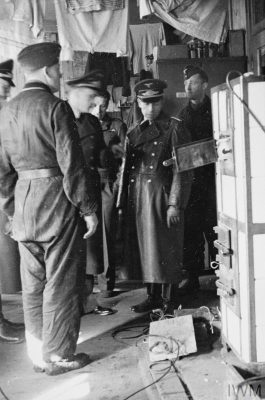
Help is on hand
After a longish stroll in the softening light they finally arrived at a farmhouse. Both the farmer and his wife made them very welcome providing the two men with a substantial meal. This was served up not only by the woman of the house but a young girl in her twenties. Although there was obviously a great bond of affection between the couple and the girl she did not appear to be their natural daughter. Her features with high slavic cheekbones bore no similarity with either the farmer or his wife. Wilf also noted that the girl spoke German with an accent. Her pleasant face was marred by an ugly scar down its left side.
Noting their guests’ curiosity, the farmer explained that the girl was actually a Polish servant called Wanda Ponitofski. He then asked the girl to tell them her story:
Wanda was born and brought up in the Polish capital of Warsaw. When Poland was invaded in 1939 this “Paris of The East” rapidly changed from a centre of culture to something that increasingly resembled a prison camp. Very early on in the occupation Wanda had a taste of Nazi brutality when she was kicked in the face by a soldier. Sadly this disfiguring blow was not the last act of violence she would suffer at the hands of the invaders.
The Ponitofski family were herded with thousands of others into the Warsaw Ghetto by the Germans. After the uprising, the whole family were executed with the exception of Wanda. She soon discovered the reason for this apparent act of mercy when she was raped repeatedly by German soldiers. When they were finished with her, Wanda was sent to Germany to be a slave worker for the Reich.
It was here that her luck finally changed when she was sent to this farm near Bad Oldesloe in Schleswig Holstein. The farmer and his wife were kindly people at heart and soon made the girl one of the family. Perhaps this was because in Wanda they saw the daughter they had never had. Or perhaps it was because she had obviously suffered greatly. In spite of everything she yearned to return to Poland.
"Guests" of the Gestapo
As the evening wore on Wilf put his knowledge of German to good use by holding a long conversation with the farmer. As the old man puffed on his Meerschaum pipe he told Wilf in vehement terms that he had never been a Nazi and had always hated Hitler.
“This was totally out of character,” Wilf recalled. “From 1940 onwards every German I met showed nothing but great enthusiasm for Hitler and his regime.” Now, five years later, Nazis were becoming as rare as hen’s teeth in the German heartland.
As it was quite late Wilf and Laurence readily accepted the farmer’s invitation to spend the night at the farm. Drifting off to sleep Wilf began to realise that his wartime ordeal was finally drawing to a close. This sense of wellbeing was rudely shattered the next morning by a rap on the farmhouse door. Opening it, the farmer was confronted by three men dressed in the distinctive black uniform of the Waffen SS. Barging in they demanded to see the “British Spies”.
Completely deaf to Wilf’s protestations that they were captured airmen, the Gestapo officers bundled them into their Mercedes and drove off to Bad Oldesloe for interrogation. Both men had no illusions about their imminent fate at the hands of the SS. It seemed that death would have the last laugh after all.
The next twenty four hours in those police cells was a nightmare of fear and violence for the two PoWs. After slapping them around and screaming repeatedly that they were spies not airmen, the Gestapo guards threw them into a cell.
What will the morning bring?
As if to mock them, the barred window looked directly onto a large statue of the Fuehrer in the town square. Throughout the following night Wilf did not sleep much.
During those dark hours, he looked back over his life as a PoW with all its deprivations and horrors. Most of all, he thought about his young wife and their baby son whom he would never see grow to manhood. Even condemned men cannot ward off sleep for ever and Wilf finally drifted into an uneasy slumber.
It was the silence that woke them the next day. In the place of the banging and shouting of the SS guards, there was nothing but an eerie calm. It seemed to Wilf as if they had already been killed and were now in some strange limbo. As daylight streamed through the cell window there was a distant rumbling that gradually grew louder and louder.
Warily the two men peered out onto what was an unbelievable scene of jubilation in the cobbled square below. The source of the rumbling soon became apparent as British tanks roared into view. No, Wilf was not dead, but gloriously and incredibly alive saved at the very last moment by Field Marshall Montgomery’s armoured troops.
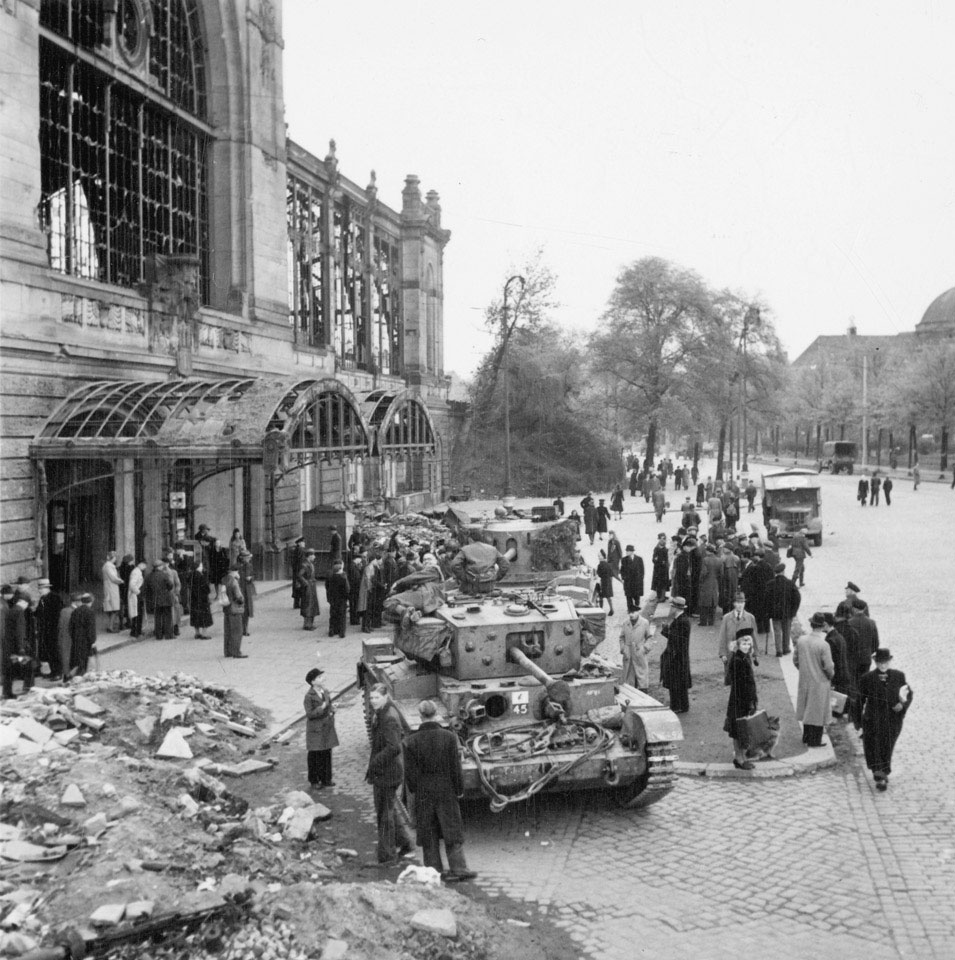
Released from the cells
After being released from the deserted police cells, the two dazed prisoners were plied with chocolates and cigarettes by the delighted British troops. Of all the many flavours of that first heady day of true freedom, one remained indelibly stamped on Wilf’s memory for the rest of his life. It was his first mouthful of fluffy white bread after the years of coarse chunks of rye loaves.
During that day, British sappers demolished the statue of Hitler. They used its shattered remnants as hardcore to repair the road churned up by their tanks.
“Poetic justice at last!” Wilf recalled exultantly.
It was also on this first day that Wilf and Reavell-Carter were offered some much more comfortable accommodation in the town than the police cells. Fearing the plundering hordes of Russians, the local wine merchant said they could have free board and lodging indefinitely. No doubt the tradesman naively believed that the presence of British airmen would deter the Russians from looting his stock and raping his wife.
However, Wilf was too anxious to return home and they reluctantly turned down the invitation. Instead he and Reavell-Carter went in search of transport out of this cursed land. After all the euphoria this proved to be the ultimate frustration. They may have been free and more than ready to return home, but they were now shackled by a lack of transport. With all the military vehicles travelling East, England seemed as far away and unobtainable as ever.
The return home
Salvation came in the no-nonsense form of an Army Sergeant. Pausing from his task of directing traffic at a crossroads he listened to their story. When they finished he simply said:
“I’ll get you a car, hang on.”
Almost immediately a black Mercedes appeared and the Sergeant stepped in front causing it to slither to a halt. The group of Germans in the car were abruptly ordered out and were left protesting loudly on the side of the road as Wilf and Reavell-Carter drove off towards Belgium.
After two days, they arrived at an airfield outside Brussels where Reavell-Carter knew the Commanding Officer. Whether by luck or good judgement it proved to be the right choice. The officer authorised the use of twin engined Airflow Oxford to fly back to England. The men’s spirits soared with the little plane as it lifted off from the airstrip and headed out towards the Channel and home.
Two hours later the Oxford touched down at RAF Dunsfold in Surrey. As the plane taxied to a halt they saw what appeared to be a large welcoming committee waiting for them. As they stepped onto British soil for the first time in five years Wilf felt this was just recognition for all the suffering they had endured. However, the two men soon realised there was something amiss with this welcoming party Instead of being greeted with cheers and applause, the group appeared oddly muted, almost irritated.
“Is this all of you?” the Officer Commanding demanded brusquely.
“Yes sir,” Wilf replied.
“We were expecting rather more of you chaps,” the officer said. “Oh well, come this way and we’ll have you deloused.”
Welcome back to Blighty you conquering heroes!
After being deloused and debriefed at Dunsfold he and Reavell-Carter were sent to the larger RAF base at Cosford. The next day they were issued with rail warrants for indefinite leave home. With that, the two men parted to go their separate ways. They never met again.
Laurence Reavell-Carter continued in the RAF, rising to the rank of Wing Commander. He also took up his sporting career as a discus thrower that had been interrupted by the War and his incarceration as a PoW. In that capacity, he competed in the London Summer Olympics in 1948. In 1946, he was awarded the military OBE for sacrificing his own freedom to protect Squadron Leader Len Trent during The Great Escape. He died in Hastings in 1985 aged 71.
Footnote: Laurence’s Rolex Watch
Extraordinary as it seems, in 1942 Laurence had a Rolex Speedking watch delivered to him at Stalag III directly from the factory in Switzerland. A letter from the manufacturers apologising for the delay in fulfilling his order arrived in February 1943 and stated:
Dear Sir, we beg to acknowledge receipt of your order dated 4th August 42, and in accordance with your instruction, we will supply you with 1 Speedking No. 4420.
‘This watch costs today in Switzerland FRS 80. But you must not even think of settlement during the war.”
It is thought that Reavell-Carter was wearing the Rolex during his abortive bid for freedom in The Great Escape. In 2015 the watch came up for auction along with the Rolex letter and sold for £10,000.
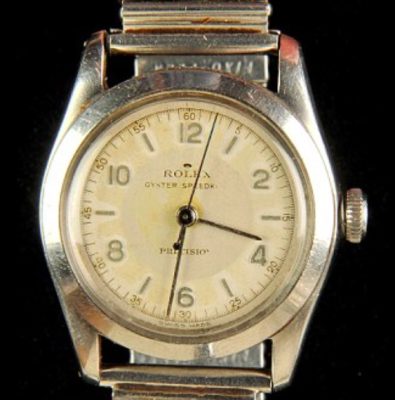
About The Author
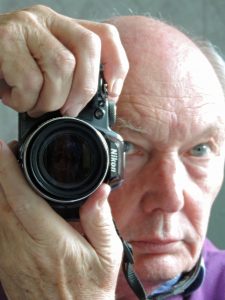
Nick's latest Book
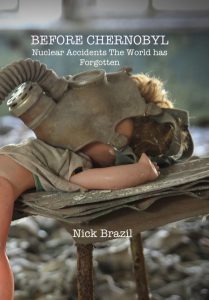
Available on Amazon
Before Chernobyl – Nuclear Accidents The World has Forgotten
Click to see full BMMHS event listing pages.
Contact us at info@bmmhs.org
Copyright © 2019 bmmhs.org – All Rights Reserved
Images © Nick Brazil

